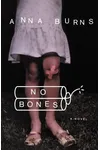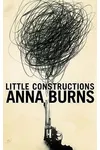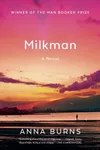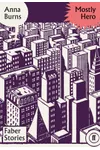Picture a Northern Irish storyteller who turned the gritty realities of Belfast’s Troubles into darkly funny, unforgettable novels—meet Anna Burns! Born in 1962, Burns has a knack for capturing the raw, human side of conflict with a voice that’s equal parts witty and haunting. Her novel Milkman made history in 2018, snagging the Man Booker Prize and cementing her as a literary force.
From her roots in Belfast’s working-class Ardoyne district, Burns spun stories that resonate far beyond Northern Ireland. Her work dives deep into the chaos of a divided society, blending humor, heartbreak, and sharp social commentary. Ready to explore the world of this trailblazing writer? Let’s dive in!
The Making of Anna Burns
Anna Burns grew up in the heart of Belfast’s Catholic Ardoyne, a neighborhood scarred by the Troubles—a decades-long conflict that shaped her worldview and writing. Born on March 7, 1962, as one of seven siblings, she navigated a world of violence and tension, finding solace in books. After attending St. Gemma’s High School, Burns moved to London in 1987, later settling in East Sussex. Her early jobs, including working as a copytaker for newspapers, gave her a front-row seat to human stories, fueling her distinctive narrative style.
Burns didn’t start writing with a grand plan. Her characters, she says, simply “come to her,” demanding their stories be told. This organic process led to her debut novel, No Bones, and set the stage for a career that’s as bold as it is unconventional.
Anna Burns’s Unforgettable Stories
Burns’s novels are like a Belfast street corner—gritty, vibrant, and full of voices you can’t ignore. Her debut, No Bones (2001), follows a girl named Amelia Lovett growing up amid the Troubles. The novel’s raw depiction of a dysfunctional family mirrors Northern Ireland’s political turmoil, earning the Winifred Holtby Memorial Prize and a nod for the Orange Prize. Critics compared it to James Joyce’s Dubliners for its vivid capture of Belfast’s everyday language.
In 2007, Burns released Little Constructions, a darkly comic tale about a woman from a criminal family on a mission of retribution. It’s less about the Troubles and more about domestic madness, showcasing Burns’s versatility. Her third novel, Milkman (2018), is her masterpiece—an experimental, stream-of-consciousness story about an 18-year-old girl harassed by a paramilitary figure. Set in a nameless city (think Belfast), it’s both a feminist manifesto and a biting look at groupthink, winning the Man Booker Prize, Orwell Prize, and International Dublin Literary Award.
Burns’s style is fearless: long, flowing sentences, unnamed characters, and a mix of humor and horror. She doesn’t shy away from tough themes—sexual violence, surveillance, or societal pressure—but her wit keeps you hooked. Her 2014 novella, Mostly Hero, continues this bold streak, proving she’s a writer who defies expectations.
Why Anna Burns Matters
Anna Burns isn’t just a writer; she’s a mirror for the complexities of human conflict. Her novels give voice to those caught in the crossfire of history, especially women navigating oppressive societies. Milkman resonated with the #MeToo movement, highlighting how power dynamics play out in everyday life. By refusing to name characters or places, Burns makes her stories universal, speaking to any “closed society” under pressure.
Her Man Booker win—the first for a Northern Irish writer—put Belfast’s literary scene on the global stage. Despite personal struggles, including chronic back pain that nearly stopped her from finishing Milkman, Burns’s resilience shines through. Her work challenges readers to see the world differently, blending the particular with the universal in a way that’s both timeless and timely.
- Born: March 7, 1962, Belfast, Northern Ireland
- Key Works: No Bones, Little Constructions, Milkman, Mostly Hero
- Awards: Man Booker Prize (2018), Winifred Holtby Memorial Prize (2001), Orwell Prize (2019), International Dublin Literary Award (2020)
Snag Milkman or No Bones and dive into Anna Burns’s brilliant, boundary-pushing world! Her stories are a wild ride through the heart of human resilience—perfect for anyone who loves a good tale with a sharp edge.




